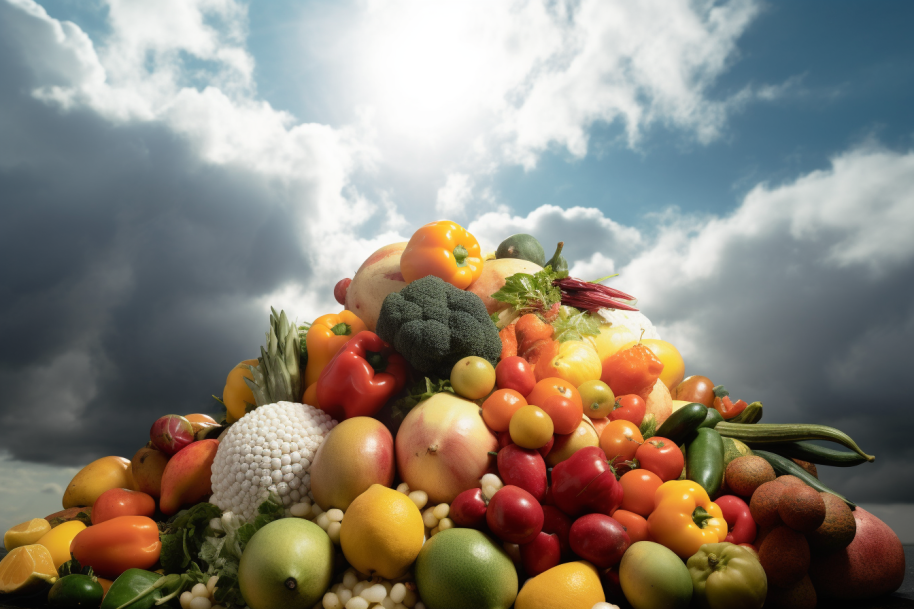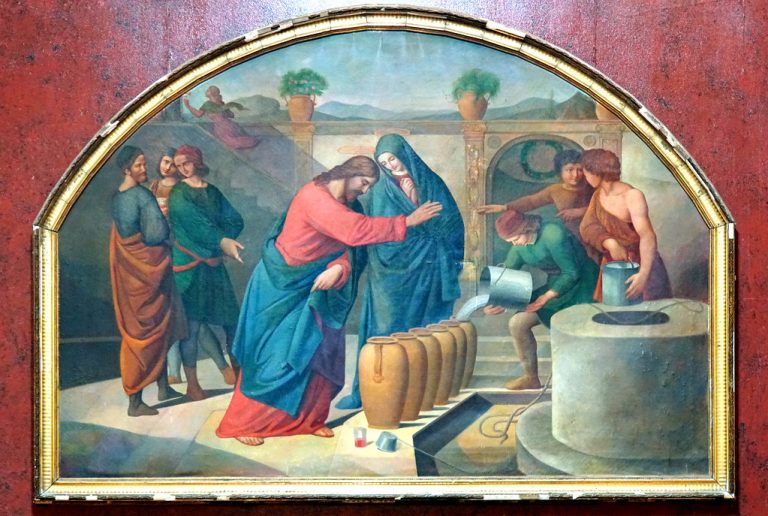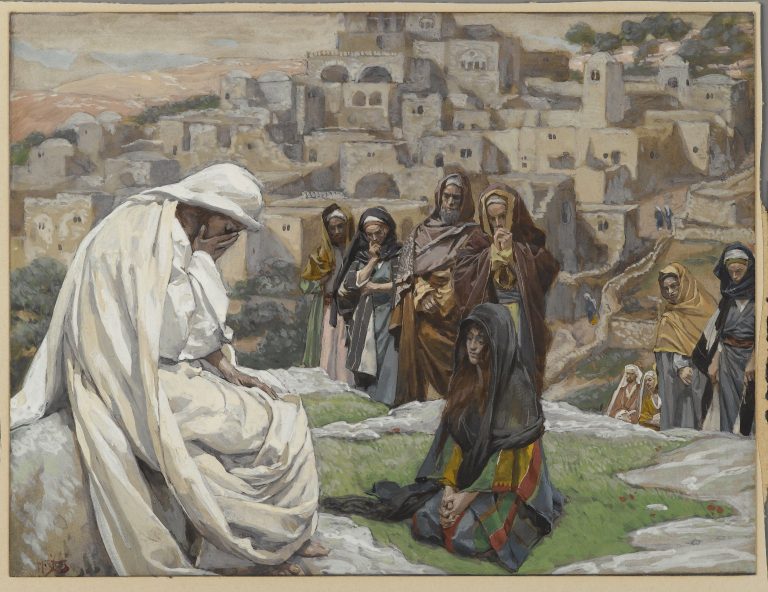Will There Be Food In Heaven? Exploring the Culinary Delights of the Afterlife
Many people throughout history have pondered the question “Will there be food in heaven?”. It is an interesting question that does not have a single answer, as it depends on the faith tradition one follows and their interpretation of sacred texts.
In this article, I will explore the various beliefs about food in heaven expressed by different faith traditions. The idea of food in heaven is found in many religious traditions, from Christianity to Hinduism and beyond.
For example, Christianity teaches that there will be a great feast in Heaven when Jesus returns; Hindus believe that there will be ambrosia—the food of the gods—in Heaven; and Buddhists believe that life in Heaven will be free of material wants, including hunger.
Each faith tradition has its own unique understanding of the nature of Heaven and whether or not it includes food.

Biblical Perspective On Food In Heaven
The Bible provides some insight into the notion of food in Heaven.
In the Bible, food is often used as a metaphor for spiritual nourishment, describing heavenly delight and eternal pleasure.
Jesus himself likened his presence to a heavenly banquet and described himself as spiritual sustenance.
It is clear that food is used as a symbol of something greater than physical nourishment in scripture, though its figurative or literal meaning is open to interpretation.
As such, it can be argued that there may indeed be food in Heaven, but not necessarily in the traditional sense.
Figurative Or Literal Meaning In Scripture
The debate about food in heaven continues to be a source of contention among religious scholars and theologians. While some believe that the biblical references to heavenly feasts are literal, others suggest that they may represent spiritual nourishment instead.
To further explore this concept, it is important to consider the following:
- The idea of sustenance in heaven as a metaphor for divine providence or spiritual nourishment
- The role of faith in sustaining believers while on earth
- Examples of figurative or symbolic language used in scripture to describe heavenly feasts
Ultimately, the scriptures provide only hints and clues regarding what the bible teaches about eating in heaven; however, many believers hope that the ultimate reward for their faith will be found not only in spiritual but also physical sustenance.
As we continue our journey through this subject, we must remain mindful of how our beliefs shape our understanding of eternity and its relationship to food on earth.
What The Bible Teaches About Eating In Heaven
The Bible speaks of heavenly banquets to which believers are invited, as found in Isaiah 25:6 and Luke 14:15. Celestial cuisine, mentioned in Revelation 19:17-18, is said to include the finest of delicacies, such as lamb and wine.
Divine dining is alluded to in the New Testament, which states that those who partake of the feast will never hunger or thirst again (Revelation 7:16).
Heavenly Banquets
The Bible speaks of heavenly banquets in many passages, and these festive feasts represent more than just physical nourishment.
Many ancient traditions would host celebratory meals to honor the gods, and we find similar examples in the Bible when it comes to celebrating God’s faithfulness.
Heavenly banquets are seen throughout Scripture as a symbol of spiritual sustenance that will be available to believers in the afterlife.
Revelation 19:9 it says “Blessed are those who are invited to the wedding supper of the Lamb!” which implies that there is indeed food for those who enter into heaven – not only physical nourishment but also spiritual nourishment for eternity.
These heavenly banquets and festive feasts remind us of the lavish abundance we can expect from our loving Father in Heaven.
Celestial Cuisine
Moving on from our discussion of heavenly banquets, we can now look at the concept of ‘Celestial Cuisine.’
This speaks to the idea that not only will believers in heaven receive physical sustenance, but they will also be able to partake in eternal feasting. This is a symbolic representation of spiritual sustenance, as it reveals the lavish abundance provided by God for those who are welcomed into his kingdom.
In other words, it is a reminder of the many blessings He has promised us in eternity. Moreover, these heavenly meals signify an everlasting connection between God and His people – one that transcends even death itself.
Thus, Celestial Cuisine’s purpose is to provide hope for the future and remind us of the joyous life that awaits us when we reach Heaven.
Divine Dining
Having discussed Celestial Cuisine, we can now move on to the concept of Divine Dining.
This is the idea that not only will believers in heaven feast on physical food, but they will also be served spiritual nourishment from the angels.
This is a reminder of God’s everlasting love for His people and how He will always provide for us.
Moreover, these angelic feasts signify an eternal connection between God and His people – one that will never die.
Thus, Divine Dining serves as a symbol of hope for believers, reminding them of the joyous life awaiting them when they reach Heaven.
The Nature Of Heaven And Eating
The nature of heaven and eating is a complex topic, and one that can be approached from various angles.
For example, there is the question of the quantity of food available in heaven. Will it be enough to satisfy physical hunger and nourish our bodies? Or will we exist solely on spiritual nourishment?
Additionally, there is the question of culinary enjoyment: will we be able to experience the same pleasure derived from earthly cuisine?
Furthermore, what might be the symbolic value of food in heaven? And then there are questions about culinary preparation: who makes the food and what role does cooking play in heavenly life?
These are all difficult queries to answer definitively, but they offer insight into the role that food may play in heavenly life.
The Role Of Food In Heavenly Life
Paralleling the physical sustenance of earthly existence, heavenly life also provides spiritual nourishment. As the eternal hunger of one’s soul is satisfied through angelic sustenance, communal meals bring celestial joy and heavenly feasts abound with a sense of divine delight.
While physical food has always been an essential part of our lives on earth, in heaven, its role is elevated to a higher purpose beyond mere sustenance as it becomes an integral part of a fellowship with God and His angels.
Food in heaven symbolizes communion between us and the divine and serves as a reminder that we are continually being spiritually nourished by God’s grace.
Conclusion
In conclusion, it is clear that food will indeed play a role in the heavenly realm. From a biblical perspective, there are several references to the presence of food in heaven, whether figurative or literal.
The Bible speaks of eating in heaven and the nature of our heavenly life involves the presence of food. Therefore, we can be assured that food will have a place in eternity with God.
What this means for us is that we can have hope for an eternal life filled with joy, nourishment, and comfort. Food is an integral part of human existence and our time on earth; it symbolizes love, fellowship, joy, and provision.
In the same way, food in heaven can be seen as an extension of God’s love and grace toward us. Ultimately, while we may not know all the details about what awaits us in eternity, we can take comfort in knowing that God provides for all his children—and this includes providing sustenance through food.
May we be encouraged by this truth and live with faith-filled anticipation for what lies ahead!

Sangtea Hmar is a passionate leader of the Youth Christian Fellowship at the Electric Vengthlang Presbyterian Church in Aizawl, Mizoram, India. He is the owner of Christiantone.com and is committed to spreading the word of God. He loves to mentor youth and help them grow in their faith.






